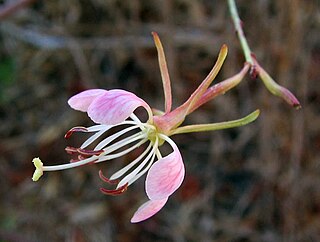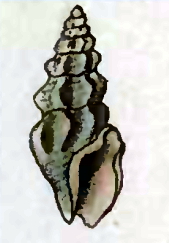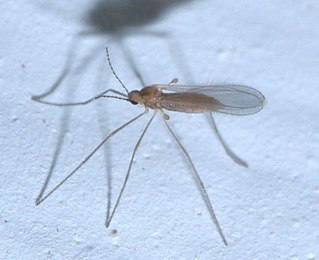
Wine Country is a region of California, in the northern San Francisco Bay Area, known worldwide as a premier wine-growing region. The region is famed for its wineries, its cuisine, Michelin star restaurants, boutique hotels, luxury resorts, historic architecture, and culture. Viticulture and wine-making have been practiced in the region since the Spanish missionaries from Mission San Francisco Solano established the first vineyards in 1812.

Sorex ornatus sinuosus, known commonly as the Suisun shrew or Suisun ornate shrew, is a subspecies of the ornate shrew that occurs in the tidal marshes of the northern shores of San Pablo and Suisun bays. Brown and Rudd redefined the western boundary of the range from a prior designation of the Petaluma River. The Suisun shrew has been designated as a Species of Concern by the U.S. government and a Mammalian Species of Special Concern by the state of California.

Colpomenia peregrina, sometimes referred to by its vernacular names oyster thief and bladder weed, is a species of brown seaweed.

Colpomenia is a genus of brown macroalgae in the family Scytosiphonaceae.

Irpex lacteus is a common crust fungus distributed throughout temperate areas of the world. It is the type of the genus Irpex. Irpex lacteus is considered a polypore, but depending on growth conditions it can also produce a hydnoid hymenophore. Due to this variability and abundance of the species it has been described as a new species to science numerous times and subsequently has an extensive synonymy. The complete genome sequence of Irpex lacteus was reported in 2017.

Hirasea is a genus of small, pulmonate land snails in the family Charopidae. This genus sees its highest diversity in the Hawaiian Islands, but species are distributed throughout Japan and Polynesia.

Oenothera sinuosa is a species of flowering plant in the evening primrose family known by the common names wavyleaf beeblossom and Red River gaura. The species was previously treated as Gaura sinuata, but in 2007 the species, along with the genus Gaura was reclassified in the genus Oenothera. This species then becomes O. sinuosa in Oenothera Section Gaura.

Posidonia is a genus of flowering plants. It contains nine species of marine plants ("seagrass"), found in the seas of the Mediterranean and around the south coast of Australia.

Plerogyra sinuosa is a jelly-like species of the phylum Cnidaria. It is commonly called "bubble coral" due to its bubbly appearance. The "bubbles" are grape-sized which increase their surface area according to the amount of light available: they are larger during the day, but smaller during the night, when tentacles reach out to capture food. This species requires low light and a gentle water flow. Common names for Plerogyra sinuosa include "grape coral", bladder coral, and pearl coral. According to the IUCN, Plerogyra sinuosa ranges from the Red Sea and Madagascar in the western Indian Ocean to Okinawa and the Line Islands in the Pacific.

Isophyllia sinuosa, the sinuous cactus coral, is a species of stony coral in the family Mussidae. It is found in shallow water in the tropical western Atlantic and the Caribbean Sea.
Glaucoclystis sinuosa is a moth in the family Geometridae first described by Charles Swinhoe in 1895. It is found in the north-eastern Himalayas.

Colpomenia sinuosa, commonly named the oyster thief or sinuous ballweed, is a brown algae species in the genus Colpomenia. It is the type species of its genus and is widespread in tropical to temperate zones around the world.

Lecanopteris sinuosa is a fern that belongs to the fern genus Lecanopteris. This epiphytic plant has a mutualistic relationship with stingless shelter ants, which makes it a myrmecophyte.

Pyrinioides is a genus of moths of the family Thyrididae.

Drillia sinuosa is a species of sea snail, a marine gastropod mollusk in the family Drilliidae.
Eucalyptus sinuosa, commonly known as octopus mallee, is a species of mallee that is endemic to Western Australia. It has smooth bark, linear leaves, flower buds fused together in clusters of between eleven and twenty-five, greenish yellow flowers and fruit that are fused into a woody mass.

Hemipenthes sinuosa, the sinuous bee fly, is a species of bee fly in the family Bombyliidae, found in North America.

Pseudocraterellus undulatus is a species of fungus belonging to the family Hydnaceae. It has the common name sinuous chanterelle.

Tingena sinuosa is a species of moth in the family Oecophoridae. It is endemic to New Zealand and has been observed in Wellington and at Tongariro. Adults of this species are on the wing in December.

Isocolpodia is a genus of gall and forest midges in the family Cecidomyiidae. There are about six described species in Isocolpodia.



















